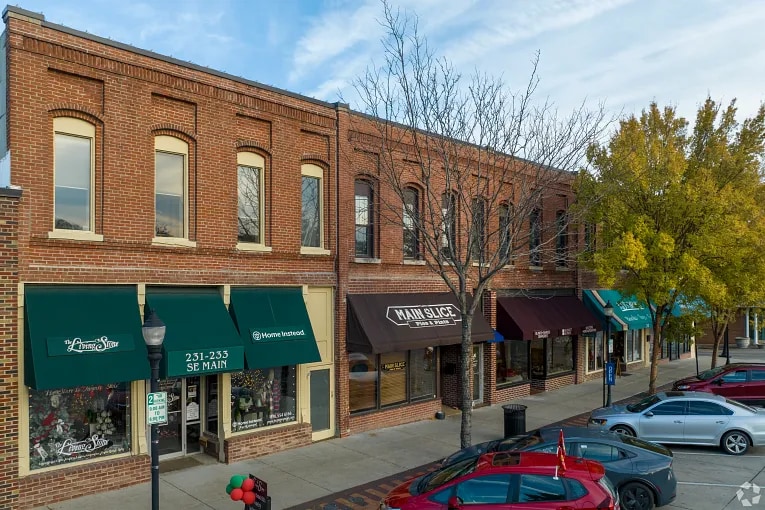What is a Zoning Variance and Why It Matters in Commercial Real Estate

Land zoning laws determine how land can be used, guiding everything from building types to property uses. In commercial real estate, understanding these regulations is crucial for making informed investment decisions. When standard zoning rules don't fit your plans, a zoning variance may offer the flexibility you need.
What is a Zoning Variance?
A zoning variance is a special permission granted by local authorities that allows a property owner to diverge from the existing zoning regulations. This exception is typically sought when strict adherence to the zoning rules would cause undue hardship or limit the property's use. Zoning variances do not change the zoning law itself but provide flexibility for unique situations.
Types of Zoning Variances
There are two main types of zoning variances: area variances and use variances. An area variance allows adjustments to physical property requirements, such as building height or setbacks. A use variance permits a property to be used in a way that the current zoning laws do not typically allow, like converting residential property to commercial use. Both types are essential tools for investors facing unique property challenges.
When and Why You Might Need a Zoning Variance
A zoning variance is often necessary when a property's existing zoning restrictions limit your ability to develop or use it as intended. Common situations include needing to build closer to a property line, converting a residential property to commercial use, or overcoming other zoning obstacles. While the formal request for a zoning variance typically happens after land acquisition, savvy investors often perform preliminary checks and may even structure purchase agreements to address potential zoning issues before closing the deal. Understanding zoning is crucial when buying land to ensure your investment aligns with your development goals.
How to Apply for a Zoning Variance
Applying for a zoning variance involves several steps, starting with submitting a detailed application to your local zoning board. This application typically requires you to outline the specific variance you're seeking and provide supporting documentation, such as site plans and a written explanation of the hardship caused by existing zoning regulations. The process often includes a public hearing where neighbors can voice their support or concerns. Due to the complexity of zoning laws, it's advisable to seek professional advice from a real estate attorney or zoning expert to navigate the process smoothly and increase your chances of approval.
Challenges and Considerations
Obtaining a zoning variance is not guaranteed, as these exceptions are only granted when strict zoning rules create significant hardship. The likelihood of approval depends on the strength of your case and how well it aligns with local zoning regulations. Community involvement can be a double-edged sword—neighbors may either support your plans or oppose them, leading to potential controversies. Public hearings are a common part of the process, where community members can voice their concerns. Preparing for these challenges with thorough research and professional guidance is essential to navigate potential roadblocks.
Tips for Success
To improve your chances of securing a zoning variance, start by thoroughly understanding the local zoning laws and how your request fits within them. Engaging with your neighbors early in the process can help garner support and minimize opposition. Working closely with a real estate attorney or zoning expert ensures that your application is complete and well-prepared. Additionally, attending public hearings and clearly presenting your case can make a significant difference. For those interested in investing in land, understanding zoning variances can be a crucial part of a successful investment strategy.
FAQ Section
How long does it typically take to get a zoning variance approved?
The approval process for a zoning variance can vary depending on the complexity of your request and the efficiency of your local zoning board. Typically, it can take anywhere from a few weeks to several months. Factors such as public hearings, required documentation, and community input can all influence the timeline.
Can a zoning variance affect the resale value of my commercial property?
Yes, a zoning variance can positively or negatively impact the resale value of your commercial land. If the variance allows for more desirable or profitable uses of the property, it can increase its value. Conversely, if the variance is controversial or negatively perceived by the community, it could potentially lower the property's appeal to future buyers.
Are there any risks if my variance request is denied?
If your variance request is denied, you may be unable to use or develop the property as planned, which could limit its potential value or usability. Additionally, the denial could delay your project, increase costs, or require you to find alternative solutions, such as revising your development plans or seeking a different property altogether.
How much does it usually cost to apply for a zoning variance?
The cost to apply for a zoning variance can vary depending on your location and the specifics of your request. Application fees typically range from a few hundred to a few thousand dollars. Additional costs may include legal fees, surveys, or other documentation required to support your application.
Are there alternatives to applying for a zoning variance if my request is denied?
If your zoning variance request is denied, you may consider revising your project to comply with existing zoning regulations or exploring other properties that better fit your needs. In some cases, you can appeal the decision or reapply with modifications to your original request. Consulting with a zoning expert or attorney can also help identify other possible solutions.
Conclusion
Planning ahead for potential zoning challenges is a smart move for any real estate investor. By understanding the zoning variance process, you're better equipped to navigate obstacles and maximize your property's potential. If you're ready to take the next step, start browsing available land for sale to find the perfect opportunity for your investment goals.
